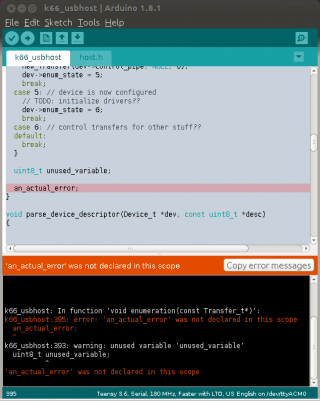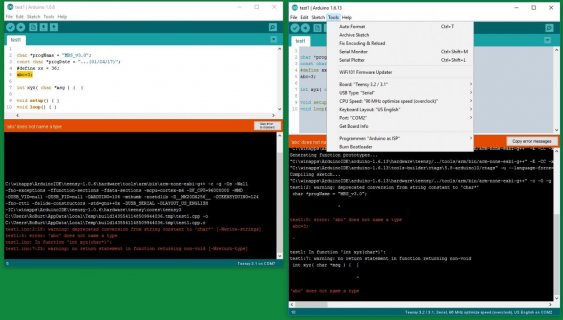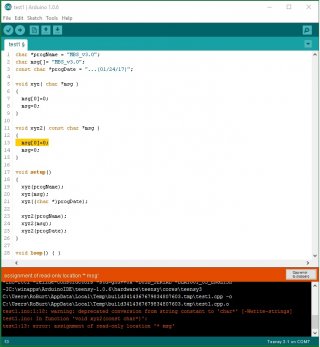This isn't actually such a world-shaking suggestion .... however
What I would really like to see is the "errors" in the Teensyduino verbose output compile window being shown in a different color from the "warnings". IE, every one of my programs shows dozens if not 100s of the following totally useless warnings, and any actual errors are buried in the pile, and it takes endless amounts of wasted time to find them, starting with blowing the IDE up to fill the entire screen so you can even read the lines. Foo.
What I would really like to see is the "errors" in the Teensyduino verbose output compile window being shown in a different color from the "warnings". IE, every one of my programs shows dozens if not 100s of the following totally useless warnings, and any actual errors are buried in the pile, and it takes endless amounts of wasted time to find them, starting with blowing the IDE up to fill the entire screen so you can even read the lines. Foo.
Code:
warning: deprecated conversion from string constant to 'char*'



